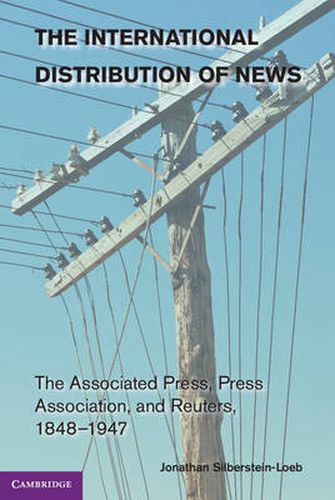Readings Newsletter
Become a Readings Member to make your shopping experience even easier.
Sign in or sign up for free!
You’re not far away from qualifying for FREE standard shipping within Australia
You’ve qualified for FREE standard shipping within Australia
The cart is loading…






Based on newly available and extensive archival evidence, this book traces the history of international news agencies and associations around the world from 1848 to 1947. Jonathan Silberstein-Loeb argues that newspaper publishers formed news associations and patronized news agencies to cut the costs of news collection and exclude competitors from gaining access to the news. In this way, cooperation facilitated the distribution of news. The extent to which state regulation permitted cooperation, or prohibited exclusivity, determined the benefit newspaper publishers derived from these organizations. This book revises our understanding of the operation and organization of the Associated Press, the BBC, the Press Association, Reuters, and the United Press. It also sheds light on the history of competition policy respecting the press, intellectual property, and the regulation of telecommunications.
$9.00 standard shipping within Australia
FREE standard shipping within Australia for orders over $100.00
Express & International shipping calculated at checkout
Based on newly available and extensive archival evidence, this book traces the history of international news agencies and associations around the world from 1848 to 1947. Jonathan Silberstein-Loeb argues that newspaper publishers formed news associations and patronized news agencies to cut the costs of news collection and exclude competitors from gaining access to the news. In this way, cooperation facilitated the distribution of news. The extent to which state regulation permitted cooperation, or prohibited exclusivity, determined the benefit newspaper publishers derived from these organizations. This book revises our understanding of the operation and organization of the Associated Press, the BBC, the Press Association, Reuters, and the United Press. It also sheds light on the history of competition policy respecting the press, intellectual property, and the regulation of telecommunications.